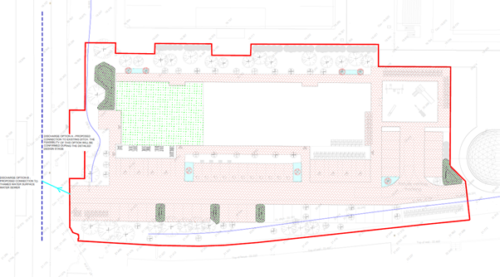Shaping the ‘Action for Silk Stream’ Water Management Initiative

As part of a six-year flood resilience partnership project led by Harrow and Barnet councils, launched in 2021, Metis has played a crucial role in assisting the councils with their “Action for Silk Stream” project.
The goal of “Action for Silk Stream” is to combat the effects of climate change by creating space for water, reducing flooding, and improving water quality in the Silk Stream catchment for the benefit of communities and the environment.
Under our partnership, we were entrusted with the responsibility of creating a Policy Challenge Paper in response to the request from the Department for Environment, Food, & Rural Affairs (Defra) to the London Boroughs of Barnet and Harrow. The main focus of this paper is the retrofitting drainage and water management arrangements in urban areas, closely tied to the Action for Silk Stream (AfSS) project— a significant initiative within the Government’s Flood and Coastal Resilience Innovation Programme.
Our Approach
The primary objective of the paper was to pinpoint areas where policy and legislative changes are necessary in the water management industry. This was accomplished by identifying the challenges faced by those responsible for implementing plans and strategies within the existing legislation and policy framework.
The paper emphasises the urgency of recognising flooding and water conservation as critical national issues that demand effective legislation, policies, strategies, and plans to manage the associated risks. The evaluation conducted in this paper uncovers current shortcomings in the legislation and proposes improvements to address these issues.
Data Collection Methodology and Timeline
- February 2022: A workshop involving professionals from Barnet, Harrow, and other industry organisations kick-started the policy challenge. They discussed key issues, barriers, and priorities in the sector.
- July – September 2022: The project team reviewed 13 crucial pieces of legislation.
- September – October 2022: Interviews were conducted with key professionals, authorities, and organisations involved in flood and non-flood risk management legislation.
- November 2022: The project team held three workshops to discuss findings from the legislation research and interviews.
- January – February 2023: The project team met to consolidate the findings, identify common themes and ideas from the interviews, and develop recommendations and conclusions.
- April 2023: The project team utilised the gathered information to shape the recommendations, next steps, and conclusions.
- May 2023: The first draft of the paper was sent out for peer review to members of different organisations to receive feedback, which was incorporated into the final submission.
Outcome
The recommendations derived from the key theme discussions are as follows (for detailed sub-recommendations, please refer to the full DEFRA Policy Challenge – Retrofitting drainage and water management arrangements in urban areas report.
- Redefine legislation and policy to protect and allocate space for water.
- Utilise development to proactively manage surface water, approved by the SAB, aiming for improvement rather than just preventing degradation.
- Adopt an integrated water management approach (beyond flood risk management) based on hydrological catchments and stop referring to rainwater as wastewater in water bills.
- Ensure ‘making space’ for water is a fundamental collaborative flood risk requirement (SAB) for all public and private sector works through partnership efforts.
- Invest in community ownership through green financing and Biodiversity Net Gain for water management to encourage sustainable behaviours and lay the groundwork for the future.
- Implement and improve training to address the skills gap and ensure sustainable levels of resourcing within the water industry.
- Establish a research and development program for the water management industry, monitored and evaluated by water management professionals.
Conclusion
In conclusion, the paper highlights the urgent need to update legislation, policies, strategies, plans, and funding processes to align with the current climate situation. Water is a vital resource essential to life, and it must be treated as such.
The paper urges policymakers to embrace the message of conserving and making space for water when striving to improve the status of flood risk, not only in London but across the entire country. This approach will empower those on the front line to effect change and fulfil their core responsibilities in enhancing water management.
Want to learn more about our work? Check out other Metis case studies.
If you’re looking for an experienced, passionate, and innovative civil and environmental engineering team to partner with you on your next project, please get in touch with us today.



